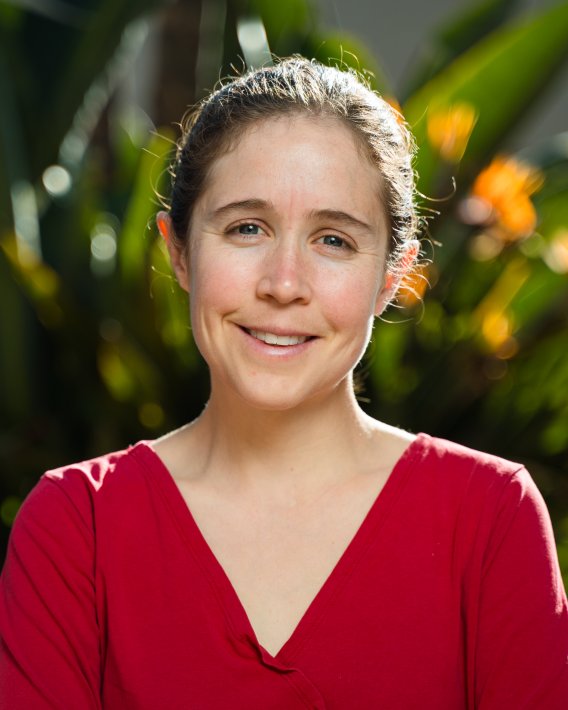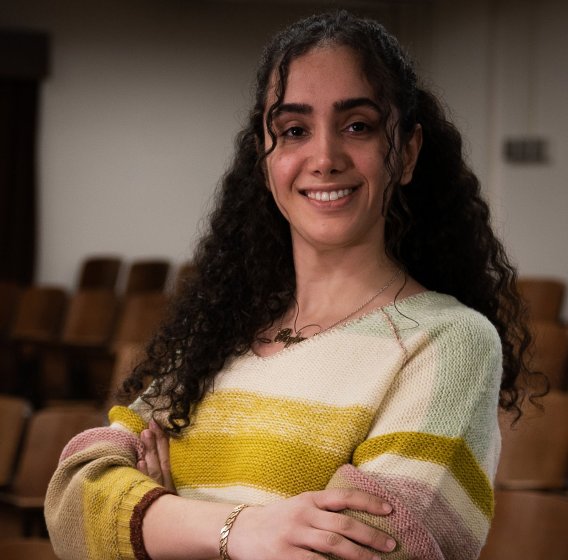Edward Silberman Award Ceremony & Distinguished Lecture by Prof. Anna Trugman
Presentation of the 2022 Edward Silberman Fellowship to Reyhaneh Rahimi
Distinguished Lecture: Plant functional traits in terrestrial hydrological and carbon cycles
Distinguished Speaker: Anna Trugman, Assistant Professor in the Department of Geography at the University of California, Santa Barbara
Abstract: Climate change has the potential to massively disrupt terrestrial ecosystem productivity, impacting biodiversity, and driving Earth’s forests to release carbon into the atmosphere, which would further exacerbate climate change and modify the hydrological cycle. Plant functional traits, such as those that determine tree drought vulnerability, and the diversity in traits within a forest, modulate surface water, carbon, and energy fluxes. Yet, we do not know how species composition and their accompanying traits will change with climate change. In this talk, I leverage plant physiological observations, large observational databases, and trait-based ecosystem models to understanding the extent to which plant trait diversity can impact ecosystem resilience to drought events, and the subsequent effects on ecosystem carbon and water fluxes. Using a trait-based vegetation model and observed maps of hydraulic traits, I generated maps of plant water status and hydraulic stress and examine the extent to which trait acclimation and turnover can ameliorate future climate stress. Importantly observed trait velocities (changes in forest community trait compositions over time) are not keeping pace with the required compositional shifts to mitigate increases in hydraulic stress.

About: Anna Trugman is an Assistant Professor in the Department of Geography at the University of California, Santa Barbara. Her research is focused on the biogeochemical and hydrological consequences of forest physiological and ecological responses to climate change through combined observational and modeling approaches. Anna is a recipient of the New Phytologist Tansley Medal for outstanding research in plant sciences, the Ecological Society of America Early Career Award, and the American Geophysical Union Global Environmental Change Early Career Award.
Award recipient: Reyhaneh Rahimi, Department of Civil, Environmental and Geo- Engineering
Abstract: Precipitation nowcasting, the high-resolution forecasting of precipitation up to 6 hours ahead, supports the real-world socioeconomic needs of many sectors reliant on weather-dependent decision-making. Today’s weather predictions are driven by powerful numerical weather prediction (NWP) systems. By solving physical equations, NWPs provide essential planet-scale predictions several days ahead. However, they struggle to generate high-resolution predictions for short lead times. On the other hand, current remotely sensed precipitation products have a few hours of latency, associated with the acquisition and processing of satellite data. In my research I want to reduce this latency and improve their applicability, value, and impact by applying a robust nowcasting system to these products. However, the development of such a system is complicated by the chaotic nature of the atmosphere, and the consequent rapid changes that can occur in the structures of precipitation systems. Using Recurrent and Convolutional deep neural network structures to I tried to address the challenge of precipitation nowcasting and develop a model that can provide precipitation estimation for up to four hours ahead. The results demonstrate that the performance of the deep learning-based forecasting model can outperform the numerical weather prediction models.

About the recipient: Reyhaneh Rahimi is a Ph.D. candidate in Civil Engineering (Water Resources Management) at the St. Anthony Falls Laboratory studying under Prof. Ardeshir Ebtehaj. Reyhaneh holds a Bachelor of Science and Master of Science in Civil Engineering from the University of Tehran. Her research interests include remote sensing of land-atmosphere interactions, statistical hydrology and analysis of uncertainties, satellite hydrology and precipitation retrievals, and hydrological modeling and optimization.
